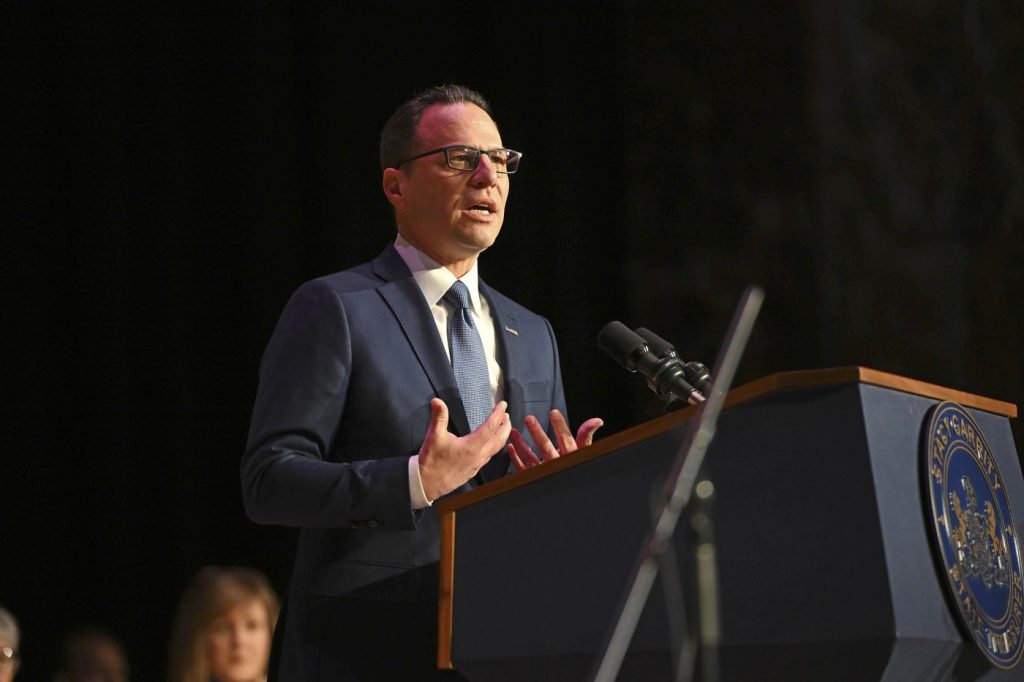HARRISBURG, Pa. (AP) — Pennsylvania Governor Josh Shapiro unveiled his budget proposal on Tuesday, emphasizing the need for increased funding for underfunded public schools and public transit. The proposal also seeks to gain support for the legalization of marijuana and the implementation of taxes on skill games, which are considered competitors to casinos and state lottery games.
The Democrat's budget request for the fiscal year 2025-2026 exceeds $50 billion for the first time, totaling $51.5 billion, as Shapiro prepares for his re-election campaign. He is aiming not only for more funding for universities but also promoting tax breaks to stimulate the construction of new power plants. To manage the budget, Shapiro plans to utilize a portion of the $10.5 billion surplus in reserve cash that the state currently holds, a result of federal COVID-19 relief and inflated tax collections in previous years.
Shapiro's proposal outlines a spending increase of 9% through the state's main bank account, amounting to approximately $3.8 billion. This includes a supplemental request of $230 million for the current year's expenditures. Of the total proposed budget, around $2 billion is earmarked for human services, including medical care for the poor, while another $1 billion is allocated for K-12 education and higher education institutions.
Significantly, about $526 million of the new education funding will be part of a long-term strategy responding to a court ruling that determined Pennsylvania's public school funding system violates the constitutional rights of students in low-income districts. Despite holding steady on personal income and sales tax rates, Shapiro's plan relies on utilizing about $4.5 billion in reserve funds to balance budgets over consecutive years featuring multibillion-dollar deficits.
The projected tax collections are expected to increase by $2.3 billion, reaching a total of $48.3 billion, which represents a 5% growth. However, much of this increase hinges on the approval of several of Shapiro's proposals, which include raising almost $1.2 billion from legalizing adult-use marijuana and adjusting how the corporate net income tax is applied.
In response to ongoing demands from educational advocates, the funding proposed by Shapiro falls short of what the plaintiffs in the school funding lawsuit are seeking. Additionally, nursing homes, home care providers, and counties are likely to receive much less in terms of reimbursements than they desire. Shapiro also proposes to allocate nearly $300 million more, equating to a 20% increase, to public transit agencies, aiming to mitigate cutbacks at the Southeastern Pennsylvania Transportation Authority (SEPTA), which has been striving to recover from ridership losses during the pandemic.
Furthermore, the budget proposal includes plans to reduce reimbursements to cyber charter schools, which could save nearly $400 million, and to close two state prisons, as the current prison population is about 82% of capacity across Pennsylvania's 24 correctional facilities.
Despite utilizing surplus funds, concerns arise regarding sustainability as current spending requires around $3 billion of surplus cash. This has led to caution from Republican lawmakers, who warn that Pennsylvania must rein in its spending or face the risk of depleting its financial reserves in the coming years.










